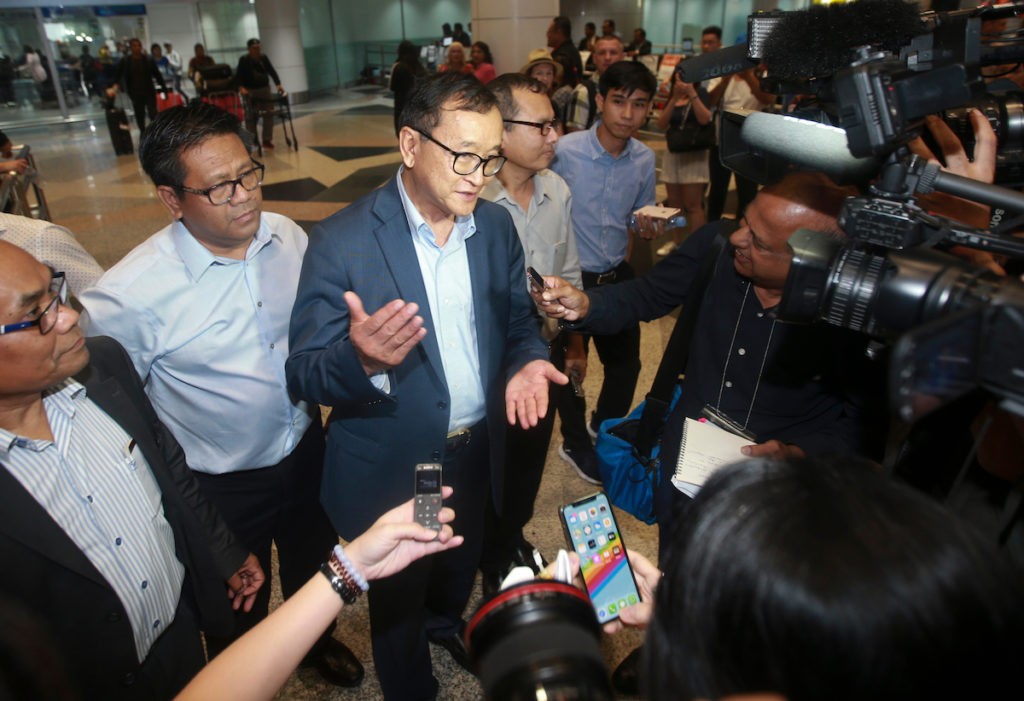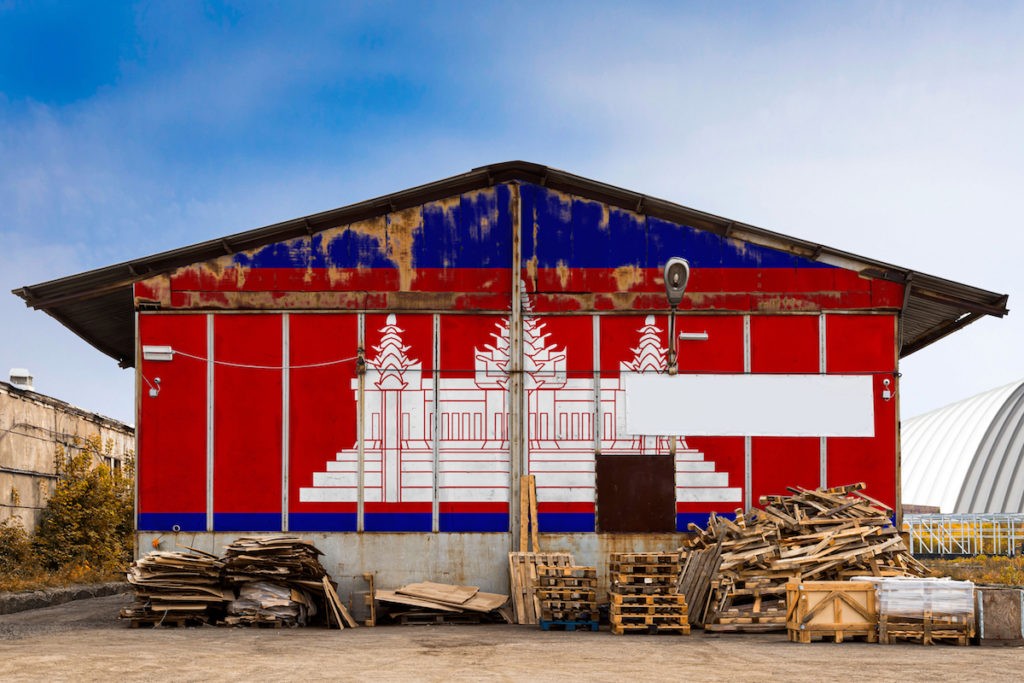Sok Chantha, a former official of Cambodia’s banned opposition party, was asked by the local authorities on April 20 to come to the commune hall in his village in southeastern Prey Veng province. The former executive committee member of the Cambodian National Rescue Party (CNRP) was told that the village chief wanted to meet him to discuss a debt that Chantha owed a microfinance institution.
But when Chantha arrived at the hall there was no microcredit lender representative, Chantha’s son Sok Chamroeun told LiCAS.news.
“Instead I saw a commune police car and a car from the Ministry of Interior,” Chamroeun said. “They arrested my father without saying what the charges were and without showing an arrest warrant,” he said.
Days later Chamroeun learnt his father was arrested over a Facebook post in which he allegedly insulted Cambodia’s King Norodom Sihamoni.
“We have no idea why they charged him for that, as he has never posted anything or shared anything related to that. Instead, I suspect they arrested my father because he’s a former member of the CNRP,” Chamroeun said.
Chantha is just one of at least 30 people who have been arrested in Cambodia since late January on charges such as incitement, conspiracy, spreading false information and spreading ‘fake news’.
Twelve of them are former members or activists of the CNRP, the opposition party founded by Sam Rainsy and Kem Sokha. The CNRP was widely seen as the biggest and most popular challenger of Prime Minister Hun Sen, the strongman who has ruled the impoverished nation since 1985.

In a controversial move, Cambodia’s highest court dissolved the CNRP in November 2017 after Sokha was arrested on charges of treason.
Crackdown
Human rights activists and Cambodia’s opposition members say that the crackdown on critics has been ongoing since the dissolution of the CNRP. The outbreak of the coronavirus, which has reportedly infected 122 people in Cambodia and created serious economic carnage, hasn’t stopped the suppression.
Instead, Cambodian authorities are using the outbreak to arrest more critics and to implement a new state of emergency law that restricts human rights and gives the government excessive power, activists say.
“There’s a health crisis and an economic crisis going on, but I notice that Cambodia’s government seems to use this as an opportunity to make more arrests,” said Soeng Senkaruna, a senior investigator at the Cambodian human rights organization ADHOC.
There’s a focus on suppressing former opposition members, he said.
“Some of them have not been politically active since their party was dissolved. Many of them are doing their normal business but the authorities still arrest them,” Senkaruna said.
“Instead of listening to criticism to improve things, they use the criminal code to crackdown and to arrest those who criticize the government,” he added.
Mu Sochua, the vice president of the CNRP, told LiCAS.news that the Cambodian government is using courts for politically motivated arrests and has hired hundreds of people to monitor activity on Facebook.
The opposition leader also said that the prime minister threatens to destroy CNRP supporters.
“The only motive is to spread fear to prevent our members from organizing or taking part in any protests,” Sochua said.
Mass suppression
What makes these arrests even more controversial, are the charges that some of the suspects face.
On April 7 the authorities arrested Sovann Rithy, a journalist and the director of the online news site TVFB, after he directly quoted Prime Minister Hun Sen from a speech. Rithy was charged with ‘incitement to commit a felony’. The charges were condemned by human rights defenders. Journalist groups have called for his release.
Such repression is far from new in Cambodia.
Since the 2017 arrest of opposition leader Kem Sokha — whose trial over treason charges has been delayed because of the pandemic — dozens of activists, human rights defenders, journalists and opposition members have been arrested. Independent media organizations as the Cambodia Daily and Radio Free Asia were forced to close their offices, outspoken NGO’s were intimidated and accused of colliding with the opposition.
Following international pressure things appeared to change for the better in November last year. Dozens of political prisoners — many of them related to the CNRP — were released from jail. Some labor union leaders, accused of organizing illegal strikes and protests, had their charges dropped.
While the government denies it, many in Cambodia believe the November relaxation was due to the European Commission threatening to ban Cambodia from preferential trade benefits because of the repression of democracy and human rights in the country. Despite what occurred in November, the EU announced in February that Cambodia would lose its trade benefits.

Today’s economic crunch
Meanwhile Cambodia’s economy has been hit hard by the coronavirus pandemic.
Due to lack of orders factories have shut and construction sites have fallen silent. The travel and entertainment industries have likewise been shut down.
Mu Sochua, the vice president of the CNRP, said the government is under further strain over the economic crisis.
“The economic impact caused by COVID-19 is affecting hundreds, if not millions of people,” Sochua said. “The government is talking about an economic stimulus, but much remains to be seen. Timing is key and the most vulnerable, women in the entertainment industry, are suffering badly,” she said.
“Hun Sen is preparing for a worst scenario — the people rising up.”
Human rights investigator Soeng Senkaruna also has concerns. Now that the entire world is busy fighting the pandemic, they may not see human rights violations in Cambodia, he said.
“I would like to request democratic countries to help in pressuring Cambodia’s government to respect human rights and democracy. And I would like the Cambodian government to stop arresting people. Instead they must work together with different political views to fight against COVID-19 and find a strategy on how to develop our country after the pandemic.”
For now Sok Chamroeun believes that he and his family are victims of an injustice. He can only hope that his father will soon be released.
“They arrested my father without any proof or evidence. There was no arrest warrant and the authorities have abused our rights,” he said.
“I think, if our country can arrest anyone that easily we don’t need a court, National Assembly or Constitution anymore.”






